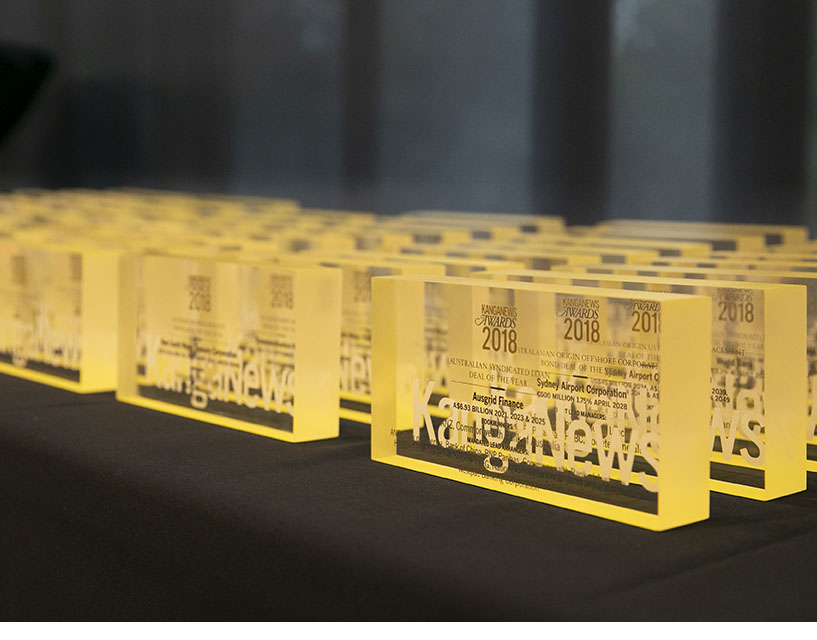
News

New Zealand became the only sovereign rated by S&P Global Ratings to be upgraded since the beginning of the COVID-19 crisis, on 22 February. The one-notch upgrade – to AAA – was driven by the country’s effective response to the pandemic and also improves the rating of related government agencies and local councils.

Nearly a year since the Australian Office of Financial Management (AOFM) deployed its first investment from the Australian Business Securitisation Fund (AOFM), the government debt-management agency is seeking to reinvigorate its mandate to develop the SME financing market. COVID-19 forced a focus on emergency liquidity mechanisms and put the ABSF on hold, but the AOFM believes the experience may now allow it to fast-track its longer-term ABSF aims.

Suncorp-Metway’s return to senior-unsecured issuance revealed the scale of pent-up demand for Australian financial institution (FI) credit even at record tight pricing. After a period of virtually no senior bank issuance, Suncorp expects FI issuance to pick up during 2021 as credit growth and savings drawdowns accelerate.

New Zealand domestic corporate issuance kicked off for 2021 with a debut from Arvida Group. Deal sources say COVID-19 and a crowded market in the second half of 2020 delayed a transaction that had been planned for last year, but that conditions remain receptive in the new year even for an unrated name like Arvida.

Columbus Capital reopened Australia’s public securitisation market for 2021 with a residential mortgage-backed securities (RMBS) deal that achieved record volume and pricing for the issuer. Deal sources say the transaction attracted vast interest in a credit market that has been starved of new supply.

International Finance Corporation (IFC)’s recent foray into the Kangaroo market was the issuer's first in any currency that it has swapped to US dollar secured overnight financing rate (SOFR) instead of LIBOR. Swap participants on the deal say it is a landmark transaction in the process of alternate reference rate (ARR) transition.

Contact Energy says its second sustainability-linked loan (SLL) – a four-year, NZ$75 million (US$54.2 million) bilateral facility provided by MUFG Bank – reinforces the borrower’s commitment to sustainable debt financing. MUFG, meanwhile, suggests its first SLL in New Zealand also illustrates a growing opportunity in the electricity sector as a whole.

New Zealand Debt Management (NZDM)’s latest mid-curve syndication came shortly after a labour market data print that shocked the market on the up side, leading to a bond-market sell-off. Despite recovery-driven headwinds, NZDM says issuance conditions were relatively conducive and supported a good deal outcome.

KangaNews is proud to announce the winners of the institutional and deal categories in the KangaNews Awards 2020. At the end of a tumultuous year in the Australian and New Zealand capital markets, KangaNews received votes from hundreds of market participants keen to recognise the achievements of 2020's most outstanding performers.

The 25-year deal Province of Alberta priced on 3 February is the longest-ever tenor issued in the Kangaroo supranational, sovereign and agency (SSA) market, according to KangaNews data. The transaction’s lead manager, Daiwa Capital Markets, says it is a sign of the ongoing desire for longer tenor particularly among offshore investors, but warns that consistent execution of very long-dated Kangaroos remains challenging.

The Kauri market opened for 2021 in the final week of January with two transactions – a tap from Kommunalbanken Norway (KBN) followed by a new line from Asian Development Bank. Both came at tenor longer than the New Zealand market’s traditional five-year sweet spot and intermediaries say there is plenty of local demand, but relative pricing remains challenging for further supply.

ANZ’s latest tier-two deal – a euro-denominated transaction priced on 27 January – is the fourth under its UN sustainable development goals (SDG) framework. The issuer says programmatic issuance and investor engagement has paid off, including in the form of a “greenium” pricing benefit.
